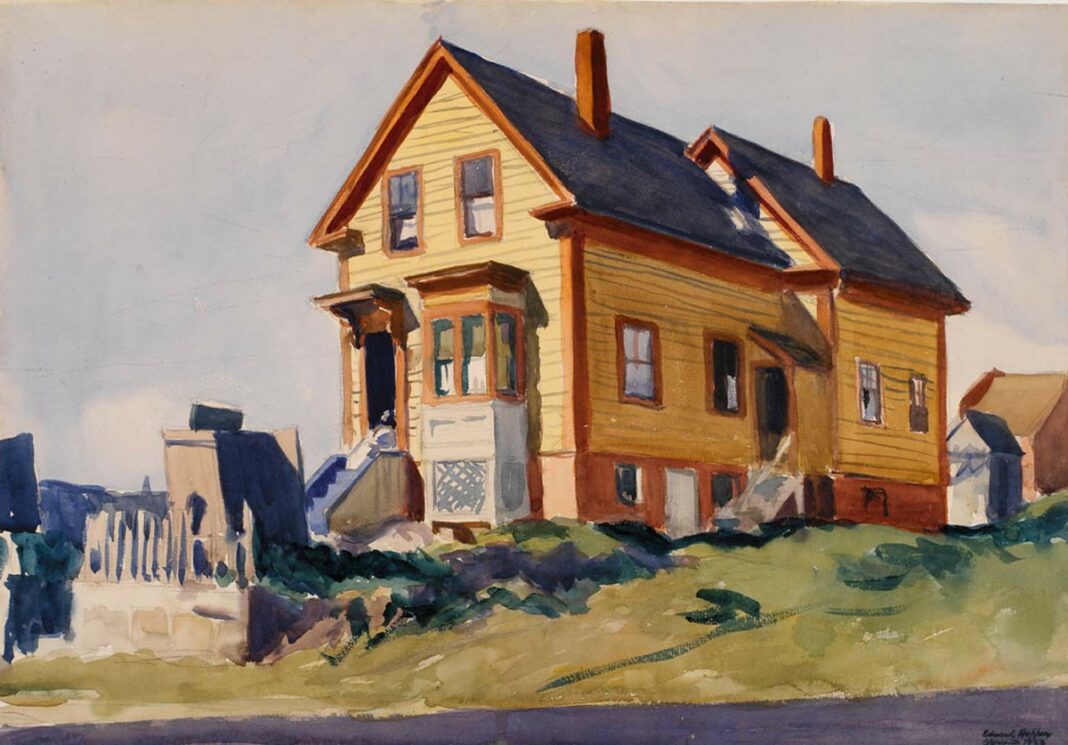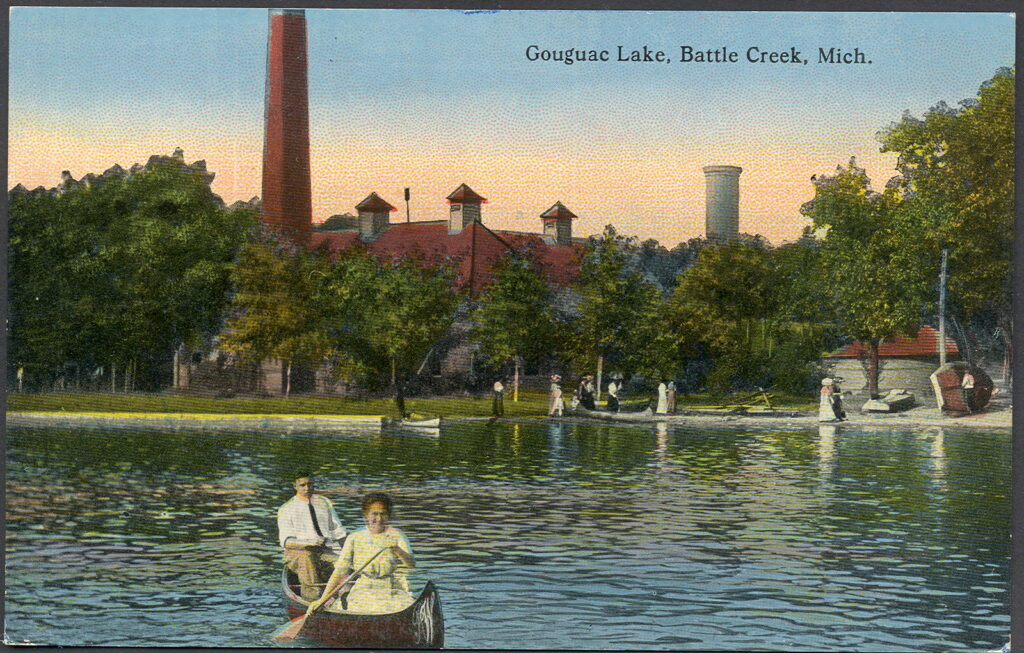Battle Creek, MI. In early November, my husband and I bought our first house in our hometown of Battle Creek, Michigan. Once we conquered the time-consuming feat of cleaning and moving in, we dove right into projects; we’ve spent the last couple months settling in, completing repairs, and decorating—making our house a home. As we’ve gone about this process of “homing” our house, I’ve found myself reflecting on where I am in life compared to what younger me envisioned for my future.
Younger me wanted out of Battle Creek. To give some context, Battle Creek is in Southwest Michigan and has a population of about 52,000. It’s also been dubbed “Cereal City” because Kellogg’s and Post were both founded there. In addition to the city’s cereal history, it’s the birthplace of Seventh-Day Adventism and was a major stop on the Underground Railroad, later becoming the home of Sojourner Truth after she escaped slavery.
In its early years, Battle Creek was a booming town known around the world for its tolerance and openness to social and religious misfits, its cereal industry, its army basic training site, and its Battle Creek Sanitarium (a health and diet reform oasis for the chronically ill).
In short, without diving too deeply into its history, Battle Creek has a rich heritage of which residents are proud.
Sadly, if you were to drive through Battle Creek today, you might say that it has fallen dramatically from its former glory. It’s not just outsiders who make this judgment; this is a common attitude among residents and former residents for plenty of reasons, most of which I’d say fall into four categories: the not-so-great economy, the lack of available leisure activities, the limited career and social opportunities, and the unfortunate crime rate.
When I was younger, those were certainly the main reasons I cited for disliking Battle Creek. And if I’m honest, sometimes I still catch myself complaining about those things, though not with the disdain I once held for my city.
Indeed, I daydreamed of staying in Michigan but finding a “better” city with “more to offer.” Think Grand Rapids, Ann Arbor, Kalamazoo, Marquette. I was not going to get trapped in Battle Creek and be among those people who never venture out of their hometown and eventually die there too.
It’s funny how life can humble you.
The journey of returning to and learning to love my hometown has been a long, slow one. It began when I went off to college at Spring Arbor University. Though I was only 45 minutes away, I was far enough removed from Battle Creek to feel both freedom and loss.
I was finally liberated from my dying hometown. Despite this newfound sense of freedom from the limits of and my responsibility to my hometown, my bad attitude toward my town gradually shifted.
Though I enjoyed being at college, to my dismay and disbelief, I began to miss my hometown. Every so often, I would load up my car with a basket of dirty laundry and return home for a weekend. Once classes were over on a Friday afternoon, I would speed off in my powder blue Saturn, my overstuffed laundry basket in the backseat waiting for me to mooch off of the free laundry facilities in my parents’ basement.
Once I would turn out of the university’s driveway, I’d first stop at the McDonald’s across the road and treat myself to a cheap latte to enjoy on drive home. As I’d dangerously drink my mediocre-but-who-cares latte while driving down I-94, I’d feel excited about staying in my own room for the weekend away from roommates, as well as seeing my parents, cat, and best friend.
Yet—and this is what surprised me the most as I’d enter Battle Creek’s city limits—I couldn’t help but feel a sense of familiarity, comfort, and belonging. I couldn’t help but feel at home.
Coinciding with these weekend trips, I began to learn about localism from a few of my English professors. Through them, I was confronted with ideas of loving, taking care of, and supporting the flourishing of your place: the people, economy, culture, land—all of it because all of it is connected.
Additionally, my professors introduced me to Wendell Berry’s work, most notably the distinction he makes between “boomers” and “stickers.” In his lecture, “It All Turns on Affection,” Berry references this idea and gives credit to its source, Wallace Stegner, one of his teachers. During this lecture, Berry laments the increasing tendency of modern people to leave their local communities and hop from place to place, never setting down true roots anywhere. These are the boomers, who, according to Stegner, “pillage and run,” and want “to make a killing and end up on Easy Street.” On the other hand, Berry quotes Stegner, stickers are those who “settle, and love the life they have made and the place they have made it in.”
Berry claims that the boomer is motivated by greed—the desire for money, property, and ultimately power—while stickers are motivated by affection, by such love for a place that they want to preserve it and stay there.
I’m hesitant to completely agree with Berry’s claim because I don’t think every person can neatly fall into one of two categories. I don’t think everyone who moves from place to place is motivated by greed (I’m not that cynical yet) and does nothing for each place’s health. Similarly, I don’t think every person who stays in one place all their life is motivated by affection for that place and contributes greatly to its health. Nonetheless, I admire the concept of stickers.
By the time I graduated college in 2018, I decided I wanted to be a sticker. But instead of returning directly to Battle Creek, I told myself I would return to my home county—that would be a good start. So when I graduated, I moved to Marshall, a small town 20 minutes away, and worked as a reporter for the local newspaper.
It wasn’t too long before I took a different job in Battle Creek, found a church in Battle Creek, and started frequently visiting friends and family in Battle Creek, so I decided it only made sense to find an apartment in Battle Creek. I moved back in 2020.
In the meantime, as I was living in Marshall, I started to become mindful of Battle Creek’s beauty. I was becoming aware of not just the beauty of the renovated downtown with its muraled buildings, or the river that stretches through the heart of the city, or the parks and wooded trails, but also the beauty found in the city’s “ugly” areas. I was starting to see the beauty of the contrasting sunshine and blue sky against the industrial areas and the blighted buildings. I was even starting to view the industrial areas and blighted buildings themselves as beautiful, in their own, unique ways.
I was realizing that no matter how imperfect or “ugly” some parts of Battle Creek are, it’s still my home, and that’s enough to make it beautiful.
Close to this time, somewhere around 2018, a local campaign called “Believe in Battle Creek” kicked off. It was an effort to bring awareness to the positive events, happenings, businesses, and people all striving to make Battle Creek a wonderful place to live and visit. With this push, people were not just noticing the good characteristics of Battle Creek, but more people were actually doing things to improve Battle Creek, such as hosting fun community events in the downtown gathering spot called the Festival Market Square. Stickers seemed to be coming out of the woodwork, singing Battle Creek’s praises, exhibiting their love for the city, and putting that love into action.
Fast forward to today, and there have been numerous activities that have taken place in the Festival Market Square these last five or so years, and there are undoubtedly more to come. It’s obvious that people have worked hard to better Battle Creek and aid in its flourishing.
I, too, want to be one who works hard to better Battle Creek and aid in its flourishing.
That’s a sentence I never would have said or written when I was younger. Of course, I never saw myself moving back to Battle Creek, marrying someone with whom I went to school and have known much of my life, or buying a house and therefore officially setting down roots in Battle Creek (with my grandparents-in-law within walking distance in the same neighborhood).
These days, instead of daydreaming of finding a better city, I daydream of how I can improve the house to make it a better home, how I can start a garden in the spring, how I can easily go for walks around my lovely neighborhood, how I can get to know my neighbors, and how I can more frequently host family and friends who are close by. To sum it up, I daydream of leading a simple, ordinary life in my simple, ordinary—but beautiful—city.
As I learn how to be a sticker, I hope to continually see the beauty of Battle Creek, no matter its faults. I want to persist in finding the good in my city, to be motivated by affection and love for it, and to be faithful to the place God’s called me to.
Image Credit: Edward Hopper, “House in Italian Quarter” (1923).













Beautiful Article, April.
Comments are closed.